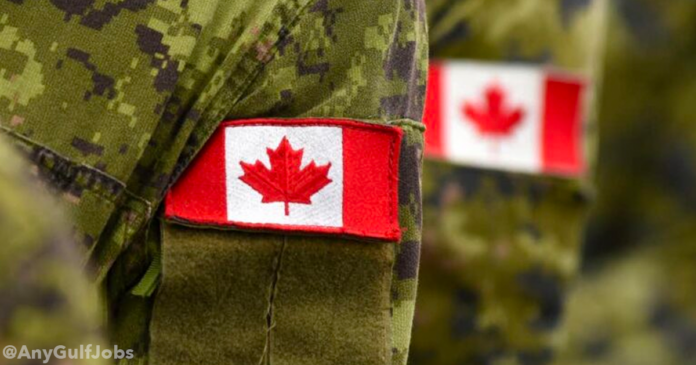A former Canadian Armed Forces (CAF) chaplain believes the military has been made less operationally effective with the mandating of Covid shots.
Rev. Dr. Major (Ret.) Harold Ristau, who served as a chaplain with the CAF for 11 years, echoed similar concerns lawyer Catherine Christianson had during a recent testimonial at the National Citizens’ Inquiry – namely that Canada has lost some of its best soldiers during the Covid debacle.
“It’s seriously dangerous to force soldiers to ignore their convictions, from both a spiritual and psychological perspective,” Ristau told True North in a phone interview on May 12th from Kenya, where he moved his family to work as a missionary.
Ristau notes that a soldier being “good to go” on the front line of the battlefield involves healthy spiritual, mental and psychological resilience: the ability to bounce back from trauma. When soldiers lack resilience, they are prime candidates for Post Traumatic Stress Disorder.
“Soldiers’ mental and spiritual health is affected by three variables: strong values that are supported by the chain of command; confidence in who they are, what they do, and personally believing in the mission; and that as individuals, they matter in the role that they play in the mission,” he explains.
In October of 2021, as the brand new Covid injections were being rolled out, soldiers who did not want to receive the shot for any reason – medical or religious – were in moral distress, yet the government initially forbade chaplains from providing any direction or guidance. Ristau described this rollout of events in detail as a witness at a Citizens’ Hearing in 2022. The Citizens’ Hearings were a precursor to the National Citizens’ Inquiry happening across Canada currently.
Since that time, public messaging has been confusing: while Prime Minister Trudeau and others now maintain they “never forced anyone to get vaccinated,” this was not the message received by CAF members who were shunned and publicly ridiculed if they declined the Covid shot.
As recently as April 3, 2023, the CAF website reads, “If you have not received at least a two-dose series of COVID immunization, we advise you to book your appointment as soon as possible. In the exceptional case that you are unable to be vaccinated due to a prohibited ground under the Canadian Human Rights Act, such as a medical contraindication, you may request accommodation.”
CAF members who wished to decline the injections were only allowed to make exemption requests for two reasons: medical and religious.
“Medical exemptions made no sense, because most CAF members are in excellent physical shape,” Ristau points out.
That left only the religious option. However, CAF chaplains were basically forbidden from fulfilling their mandate, which is to guide members through these religious, ethical and moral questions.
Chaplains eventually were permitted to make recommendations for or against religious exemptions, but only in accordance with a “strict and laughable” assessment tool, which made it so difficult to achieve an exemption that only two chaplains in the entire CAF were approved. “The religious exemption route was an absolute farce. Even my Lord Jesus Christ probably wouldn’t have qualified for religious exemption,” Ristau notes.
Ultimately, Ristau says, the Government of Canada was judging whether a church’s teaching was aligned with the mainstream media narrative and pharmaceutical messaging at the time. Registered Christian denominations were flagged if they held a position that was not fully supportive of the vaccine mandates.
Chaplains who spoke against this were immediately silenced, according to Ristau. They were pressured to refrain from any moral, ethical or religious discussions on the Covid injection. Instead, they were expected to judge whether a military member’s faith claims were real and whether their religion was, in their opinion, credible.
As a result, Ristau says, these mandatory vaccinations have resulted in Canada losing some of its best, most conscientious and courageous troops.
“The CAF seeks to attract and develop soldiers who are willing to die for their convictions.”
“Certainly, you want soldiers to follow orders, but not blindly and without conditions, as that is destructive to both the individual and the larger Canadian security. Questioning and violating our soldiers’ consciences is basically the worst thing you can do to them, psychologically and spiritually.”






















